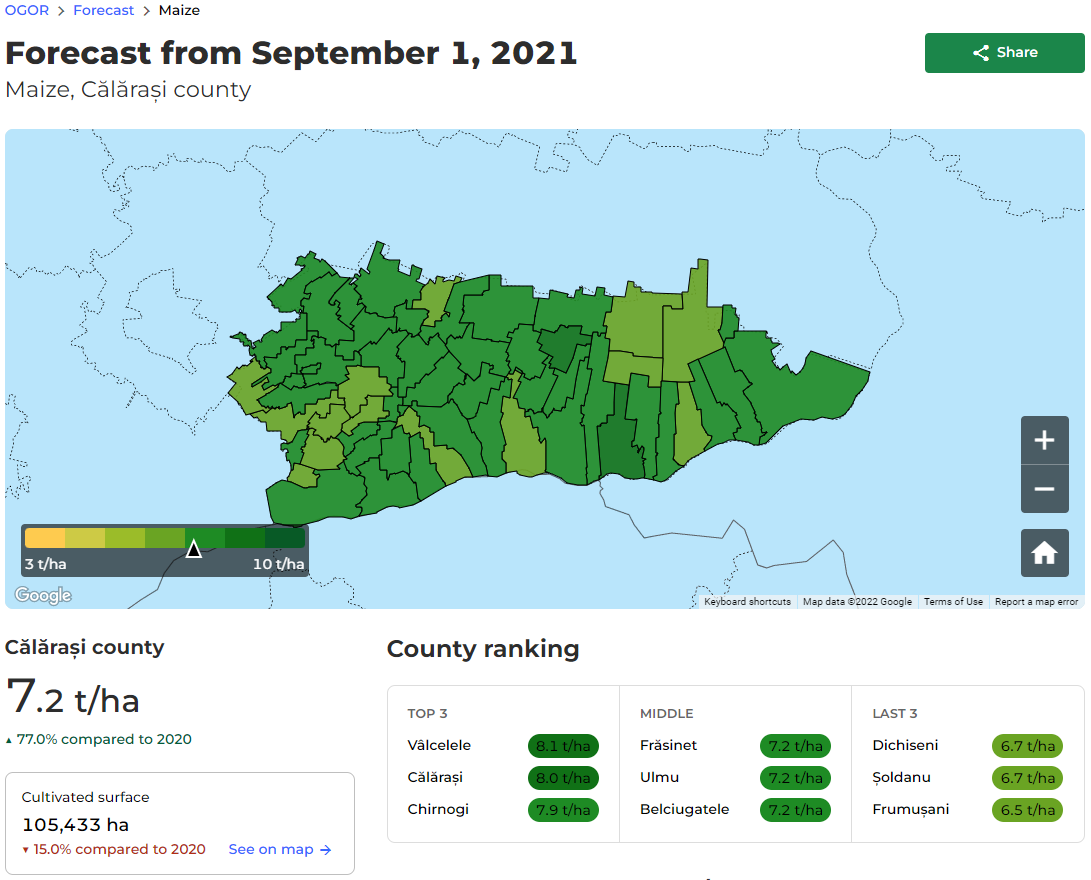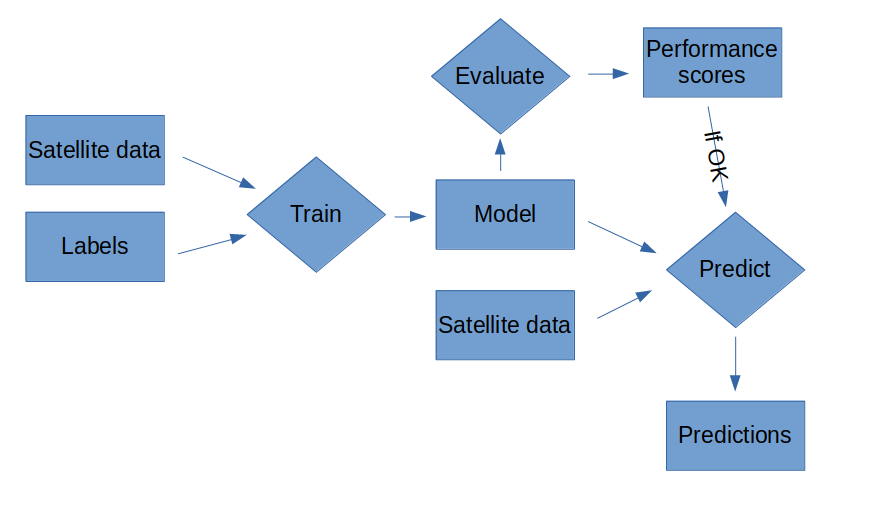Objectives of the service

The pilot-demonstration service has the following objectives:
-
On top of the existing OGOR platform, offer at parcel and farm level the yield forecast for the top five most grown crops in Romania: maize, winter wheat, rapeseed, winter barley, sunflower one month before the harvest time, updated every two weeks
-
On top of the existing OGOR platform, offer at UAT level and county level, the crop detection, and yield forecast, one month before the harvest time, updated every two weeks
The above objectives will cover only the following geographical regions in Romania, selected by the density of farmers that are in our target customers: Câmpia Română, Piemontul Getic, Podisul Moldovei, Câmpia Banato-Crişană, and Podişul Dobrogei.
Users and their needs
The key customer segments targeted by our service are the farm owners, being interested financially to know in advance the outcome of the season to better reserve silos, distribution, and transportation. The users are the agronomist engineers, interested to see how the crops are performing during the season and to measure the progress to the productivity goals set by the farm owners.
The pains (e.g., problems) and gains (e.g., benefits) are:
-
Our farm owners' (customers) main problem is related to knowing in advance the estimated productivity of their farms. By using OGOR Yield they will receive two months before the harvest, yield forecast reports for maize, winter wheat, and rapeseed thus being able to act quickly before the season ends.
-
Our agronomists (users) have difficulties in assessing the impact of their agronomic decisions relative to the productivity goals set by the farm owners before the season. Based on the OGOR Yield report, agronomists will be able to optimize the agricultural practices during the season to fulfil their objectives.
Service/ system concept
The service will be provided as an extension of the existing OGOR platform, which currently serves up-to-date and historical parcel level vegetation maps and statistics to farmers across Romania.
While the end product will be represented by maize, winter wheat and rapeseed yield estimates, users will also benefit from some of the intermediate outputs. Both parcel boundary detection and crop classification provide important shortcuts for users on boarding, by reducing the amount of user inputs required for registration.


Space Added Value
The space asset used by our application is Satellite Earth Observation and in particular:
-
Sentinel-2 Level-1C (Top-Of-Atmosphere) and Level-2A (Bottom-Of-Atmosphere) products, which contain ortho-rectified (and in the case of L2A, atmospherically corrected) images for the spectral bands captured by the satellite's multispectral imager sensor;
-
Derived georeferenced raster products for cloud detection (FMASK) and several types of vegetation indices, such as the Normalised Difference Vegetation Index (NDVI) and the Enhanced Vegetation Index (EVI). Historically, regional and national scale agricultural productivity estimations have relied on sampled, in-situ data. To compound on the data sparsity issue, some locales (Romania included) still score poorly on the public availability and transparency of agricultural data. In this regard satellite imagery will act, as it has in other domains, as a great equaliser - by opening access to raw land data and its subsequent analysis; and, conditional on accurate classification of land attributes (such as crops), predictive analysis based on satellite imagery can over perform traditional sampling methods.
Current Status
OGOR Yield Demonstration project has completed in September 2023 and it has been followed by an extension, that added two more crops, sunflower and winter barley in the system initially developed, included in the detection and yield estimation pipelines and offered to farmers and parcel, farm, county and country level.
The extension has been completed and the results are very positive. All KPIs monitored have been achieved and surpassed. The majority of users have found that the yield forecast is accurate and useful and some have already bought the package for the new agricultural season to come.



